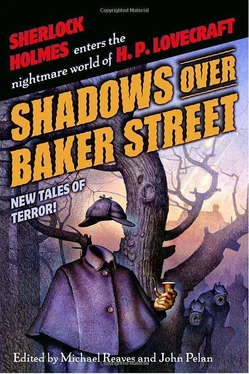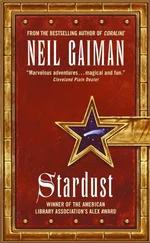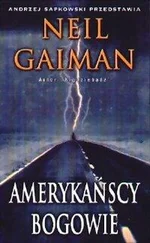I sat forward in my chair and requested the drink I’d refused. Holmes poured a double scotch. “Poltergeist, you say? Do tell me you disbelieve in such things.”
He fixed me with a sobering stare. “Do you believe in such things, Wells?”
“No, I do not, though as you know well from our conversations, the study of occult sciences and myths constitutes the foundation for much of my fiction.”
“Ah!” Holmes exclaimed, the firelight dancing across his gray irises. “Exactly the point, my dear Wells, and the first on the long list of the reasons I wish to recruit you: your thorough knowledge on the subject matter and your simultaneous skepticism as to its validity. I do believe, from the details I’ve received thus far, that a murder has been attempted and a second attempt is imminent. All participants believe a haunting is involved—and that belief is enough to color every aspect of the aforementioned crime. Our job is to expose and undermine the falsehood of the claim and apprehend those responsible. Not to mention, the young Princess Wilhelmina is apparently a fan of yours. Will you come to Holland?”
“Are you quite sure that my knowledge will be of use?”
“What is a poltergeist, Wells?”
“As I’m sure you’re aware by picking up your Britannica , poltergeist is a German term, polter meaning ‘noise’ and geist meaning ‘ghost.’ A poltergeist is a disembodied spirit with malicious intent. However, your studied occultist would find this an appallingly meaningless and generic term, with little use for taxonomic purposes and of no use whatsoever in application. I myself could list over two dozen varieties of dark denizens specific to the mythos of Holland, but first I’d need to know a great deal more regarding the events witnessed. What did they see? Who saw it and when? Could be anything from a mischievous Kobold to a charnel-house Fetch . What events were recorded prior to—”
“Yes,” he said, cutting short my explanation. “I’m quite sure you’ll be of use. Pack enough for no less than a week. And be sure to bring rain gear; the weather in Holland makes London look positively balmy. We depart tomorrow morning from the port of Harwich for Rotterdam.”
And with that he rose, shook my hand vigorously, added, “Thank you, Herbert. I believe you shall find this a most inspirational journey,” and bid me good night.
Upon reentering my coach, I glanced back toward his window as someone began playing the violin with tremendous fervor—a somber work by Liszt. My coachman snapped the reins and we careened east toward Whitechapel. I had little time to contrive how I’d explain this sudden venture to my wife.
The captain of the Dutch steamship Dordrecht gave us free run of the vessel, assuring us his personal service. The pound sterling was then high against the gulden, but the discrepancy was of small consequence, for we were now guests of the Crown, and I had to prod Holmes to allow us to be treated as such. Holmes appeared to know little of earthly pleasures, and to be disinterested in the fineries that wealth could provide. I envied him his bourgeois contentment. The trip across the Channel was calm-weathered and uneventful, leaving us a good deal of time to lounge on deck and discuss a host of Dutch political intrigues.
“Holmes, I must admit that I’m not at all familiar with the current royal family, aside from King Willem and his—ahem—somewhat younger bride, Emma,” I admitted with some embarrassment. “Please do identify the players.”
“Understandable, Wells—it’s not until the world is at war that we look past our own doorstep. Her Majesty Emma of Waldek and Pyrmont, our gracious host, is indeed forty-one years the king’s junior, and she is in fact his second wife.”
“Ah yes, the first one was Sofia. Rumor had it he beat her,” I said.
“Never trust conjecture, my dear Wells, especially with the Dutch. They’re a proud and protective lot.” He motioned me to observe an elderly couple who had overheard my comment and now proceeded to cast angry glances our way.
“Point taken, do carry on,” I said.
“Queen Sofia bore Willem three sons: Prince Nicolaas, Prince Frederik, and Prince Alexander. Frederik died at age seven—meningitis. He was reportedly misdiagnosed by the court physician, and when Sofia requested a second opinion the king refused her. When the child died, Sofia left the king quite hastily and returned to her native Württemberg.”
“Bully for her,” I cheered. “But surely there must have been some reconciliation—there was a third child.”
“Indeed, Wells, there was: Alexander, one year later. Her Majesty was known to be rather ill-tempered, vengeful, and capricious, alienating the children from their father. It’s also a little-publicized fact that she was King Willem’s first cousin.”
“Scandalous,” I said, a trifle louder than necessary, to Holmes’s chagrin.
“The surviving princes gave Holland their fair share of scandal as well,” he continued, “before their mother died of an undiagnosed illness in the summer of seventy-seven. Then the king took up with young Emma, which deepened the rift between himself and his sons. Nicolaas took up residence in Paris and Alexander left for Switzerland. A year later, Emma gave birth to a daughter.”
“Pretty little Princess Wilhelmina. Must be eight or nine by now.”
“See that, Wells—you’re not as uninformed as you’ve let on.”
“And it is this young princess who is the subject of our attempted murder and alleged haunting.”
I rose and stood by the ship’s railing, rows of windmills now apparent in the distance like blackened pinwheels lined along the shore. I recalled from my grammar-school lessons that over half the country lay curiously below sea level; the Dutch engineers having masterminded the colossal system of canals, dikes, and mills to bleed the excess water from the pilfered soil and raise the sunken earth. Now they waged constant war to keep the sea from reclaiming the country.
“All right, Holmes, I’ll take the bait and surmise that it’s one of the princes who has promulgated this fictitious haunting, the obvious motives being jealousy and revenge.”
“And you’d be quite wrong, my dear Wells.” Holmes joined me at the railing. “At least in the choice of culprit. Both the princes are already dead—Nicolaas in a duel over a woman and Alexander of typhoid fever.”
Arriving in Holland was like stepping backward in time some ten years, both in the fashion and the overall lack of facilities. Of Dutch culture I knew little, save they were known to breed the shrewdest businessmen and they purchased a great deal of English literature at bulk discount. Though Holmes spoke a fair amount of Dutch, it became clear that the majority of locals were quite fluent in the Queen’s English and, unlike the French, were willing to exercise this facility in our presence.
A first-rate coach with an armed escort of five men awaited us at the docks. Holmes was immediately recognized and greeted by a giant of a man, nearly seven feet tall and nineteen stone, called Jan Gent, with a short beard and a short line of patience. Although Captain Gent was the very pinnacle of military courtesy, it was clear by his tone and manner that he was distressed. “Welcome to the Nederlands. Your presence is immediately requested at the palace. Please come this way,” (my approximation of his full greeting to Holmes). Our luggage transferred, we clambered into the coach and were away from the port in minutes with the soldiers seated at their stations above. Passersby stopped and stood agape in wonderment; I deduced that soldiers bearing rifles were not usually seen in the thoroughfare.
Читать дальше








